Peter's CAIR appointment went well, but what we weren't counting on was an admission! Peter's blood sodium was at a value considered critically low, so he was admitted for correction of that low sodium. Apparently correcting hyponatremia (low blood sodium) too rapidly can lead to swelling of the brain, so there needs to be a gradual increase back to normal value, done in an ICU setting, at least until the level is high enough to require less labs and less monitoring.
Peter had been acting well, so the low sodium was a surprise to EVERYONE. The only real change in him has been a fairly high increase in fistula output over the past few weeks, continuing even after we changed to Elecare again (discussed in the last post). Peter dropped two and a half pounds over the last month, some of it is likely true weight loss since we had decreased formula concentration and amount without going up in TPN. More of the loss, though, seems to be the ascites that has disappeared over the last several weeks as the fistula output went up. The fistula output seems to have a high amount of sodium, and that has undoubtedly been the main cause of his low serum sodium.
There are a few reasons that the fistula could be putting out more, but to diagnose the cause with certainty would involve radiation to image the bowel. The prudent thing then is to do some trial and error with feeds and labs to monitor the sodium. If that doesn't work, then we will need to do further testing.
The trick is to prevent another bout of this hyponatremia. As such, the plan now is to go on TPN seven nights a week again, unfortunately. The reason for adding back all three nights off of TPN is because we have had to drastically cut back on feeds in an attempt to get the fistula to slow back down. He is getting just 10 mL an hour of formula now, whereas he had been up to 850 plus of formula a day. The hope is to slowly advance each week and to keep the fistula output from advancing with the formula increase.
The plan also is to keep the ascites off Peter's abdomen now that it is gone. He has had ascites even before the AVM was found. It is one of the symptoms that you often see with liver disease. With ascites, there is too much fluid in the body's abdominal tissue, and sodium affects that. For Peter, "too much sodium" is actually what would be a normal value for most people. When we see his belly get larger, we can tell without labs that his sodium levels are rising. It will be tricky to get his sodium leveled out without his ascites returning. It is so good to see his body without the giant abdomen that he has had for so long, and we all feel it is best for him to keep it from returning... if we can.
I have to say that if ever there was a "better" time for this to have happened, it was during this trip. We had already planned to spend the night in Boston, so we did not have to turn around and drive several hours back. As much as it is stressful going to the ER at 9:30 at night with a four year old who is hooked up to TPN and another IV pump that is the size of a double toaster, and an enteral feeding pump, along with an infant, it would have been so much worse had we needed to drive several hours back or needed to go to some other nearby ER that didn't know him at all. Dr. Kamin graciously called in to make sure that things went smoothly and that all parties involved were following the same plan for Peter. Even on vacation he called in to make sure all was going well. Thank you, Dr. Kamin!
Something of interest to add, is that during our ER trip, we encountered a Fellow who had taken care of Peter when she was a Resident at CHOP. She was just as surprised to see Peter as we were to see her. She remembers when he was at CHOP early on when the AVM had not yet been found, as well as when he was in the ICU at CHOP having bleeds requiring emergency transfusions. And she recalled that we left for Boston from CHOP's ICU to Boston's ICU so that we could get Peter on Omegaven. Now he is four years old, talking, eating, and one happy kid. We emphasized that Omegaven was the medication that helped him be able to get to this point, and that having one physician continually oversee him versus rotating doctors, also got him to this point. Hopefully she will remember these things as she goes on in medicine, and maybe they will be helpful to someone she cares for down the line.
One last thing.... Peter got his new PICC. It is a beauty as far as PICCs go, a little more bulky with the clamp, but it is a single lumen this time, so less bulk overall. Let's hope this one lasts a very long time. It works, so we are off to a better start than with the last PICC.
Monday, January 25, 2010
Subscribe to:
Post Comments (Atom)

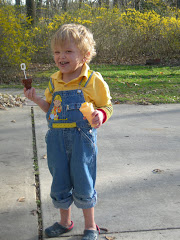

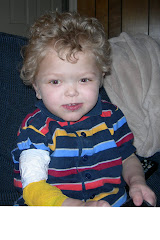



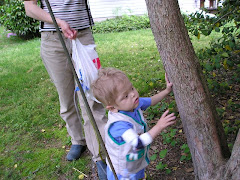
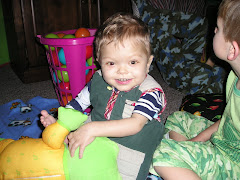
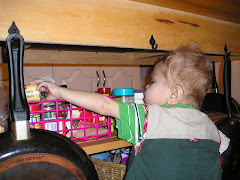
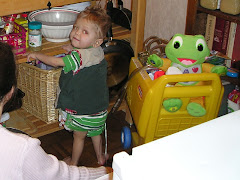
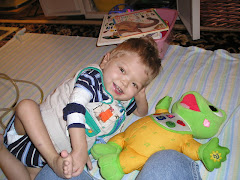
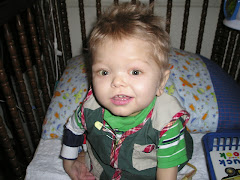
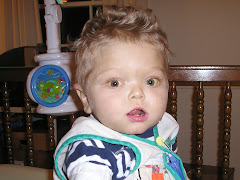
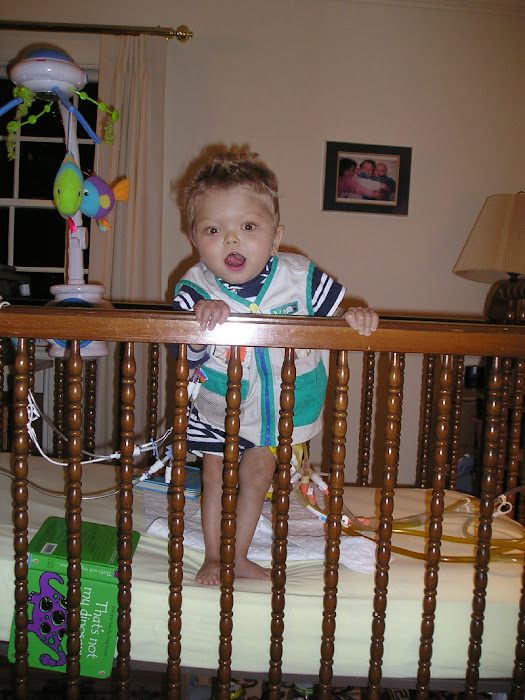
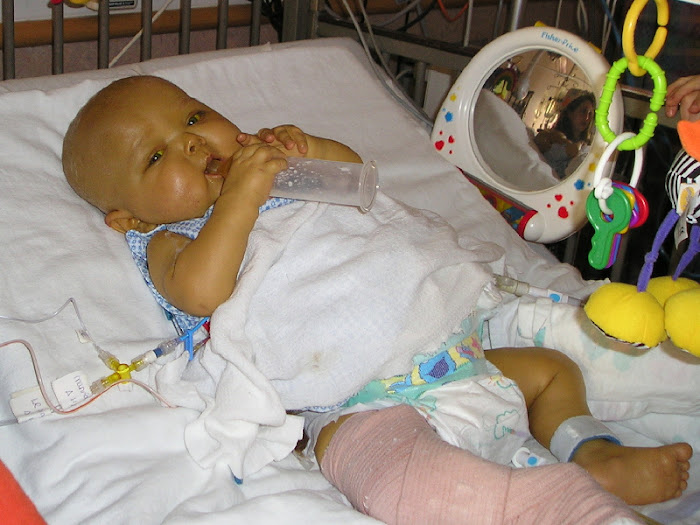
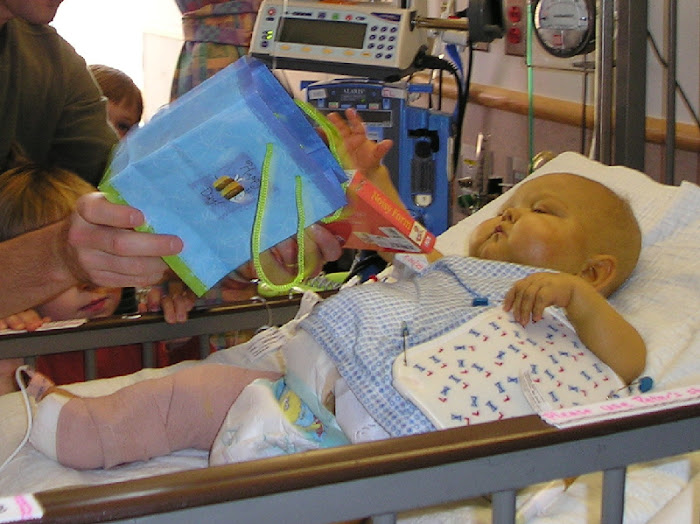
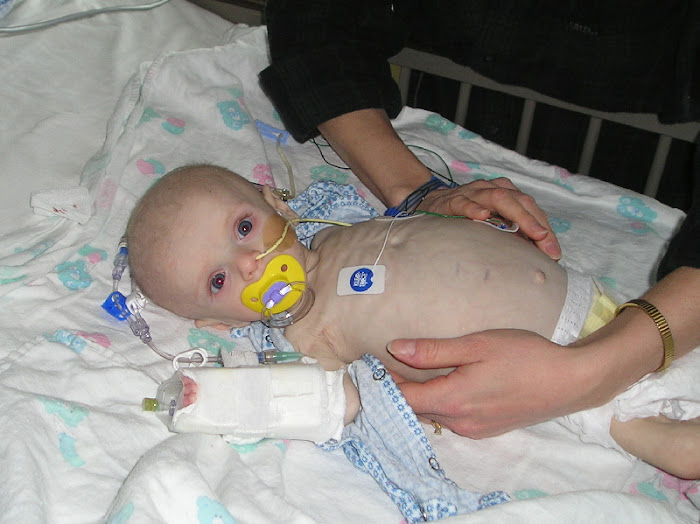
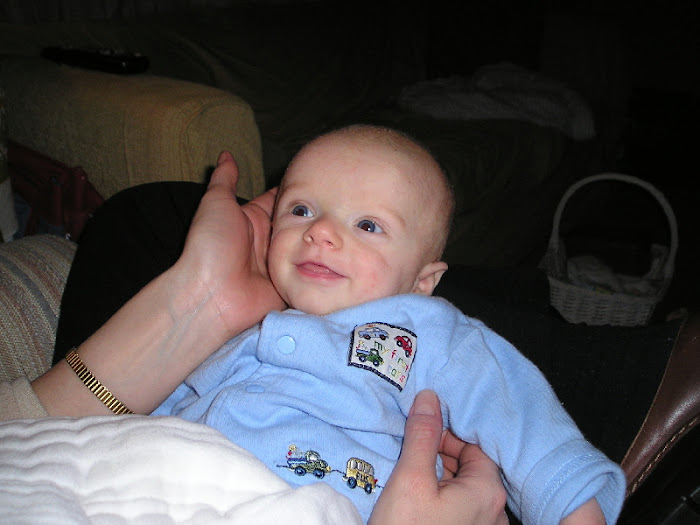
No comments:
Post a Comment